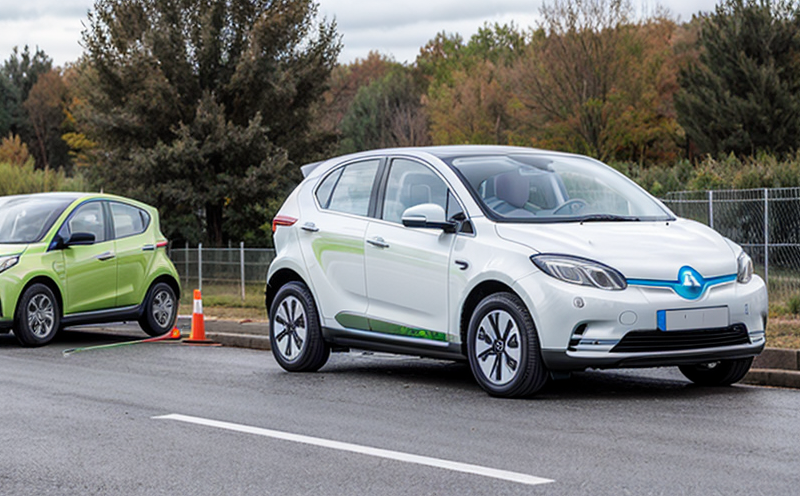SAE J2289 EV Battery Module and Pack Testing
The SAE J2289 standard is a critical tool in the evaluation of electric vehicle (EV) battery modules and packs. This test ensures that the electrical, mechanical, and thermal performance meets stringent requirements for safety, reliability, and durability. The SAE J2289 protocol focuses on the functional testing of EV batteries to ensure they meet or exceed industry standards before they are incorporated into vehicles.
The testing procedure involves a series of tests designed to simulate real-world driving conditions. These include accelerated aging, high-temperature storage, low-temperature cycling, and charge-discharge cycles. The primary goal is to determine the battery's capacity retention over time under various stressors. This ensures that the battery can deliver consistent performance throughout its lifecycle.
The SAE J2289 test also includes a thorough inspection of the battery's electrical connections, insulation resistance, and thermal management systems. These checks are essential for preventing overheating or short circuits which could lead to hazardous situations. The standard also requires that all testing is conducted in accordance with relevant safety guidelines to protect both personnel and equipment.
The test protocol is particularly important as it ensures compliance with international regulations such as UN Regulation 107 (UN R107) for battery transport, and the EU's REACH Directive. Compliance with these standards is crucial for manufacturers who aim to export their products internationally or meet regulatory requirements within specific markets.
Our laboratory uses state-of-the-art equipment that adheres strictly to SAE J2289 guidelines. This allows us to provide accurate and reliable test results, which are essential for quality assurance in the production of EV batteries. The testing process is highly detailed and involves multiple stages, each designed to assess different aspects of the battery's performance.
By leveraging our expertise and advanced facilities, we can offer comprehensive support to clients looking to validate their products against SAE J2289 standards. Our team of engineers and technicians are well-versed in the latest testing methodologies, ensuring that every test is conducted with precision and care. This commitment to quality ensures that only the highest performing batteries reach market.
Applied Standards
| Apllied Standard | Description |
|---|---|
| SAE J2289 | The SAE J2289 standard specifies the procedures for testing electric vehicle battery modules and packs to ensure they meet performance, safety, and durability requirements. |
| UN Regulation 107 (UN R107) | This regulation sets out criteria for the transport of batteries to prevent hazards during transit. |
| EU REACH Directive | The Registration, Evaluation, Authorization and Restriction of Chemicals directive ensures that chemicals are used in a way that protects human health and the environment. |
Benefits
- Ensures compliance with international standards for battery transport (UN R107).
- Guarantees safety and reliability of EV batteries through rigorous testing.
- Meets regulatory requirements in the EU and other markets.
- Aids in meeting consumer expectations for high performance and longevity.
- Reduces the risk of recalls and product liability issues by identifying potential defects early.
- Enhances brand reputation by demonstrating a commitment to quality and safety.
- Supports R&D efforts by providing detailed insights into battery performance under various conditions.
Why Choose This Test
The SAE J2289 EV Battery Module and Pack Testing service is a vital component of any manufacturer's quality assurance program. By choosing this test, businesses can ensure that their products meet the highest industry standards for safety and performance.
Our laboratory uses advanced equipment to conduct these tests in an accurate and efficient manner. This ensures that clients receive reliable results which are crucial for decision-making processes such as product launches or regulatory approvals.
The testing process is designed to simulate real-world conditions, providing valuable data on how the battery will perform under various scenarios. This helps manufacturers identify potential issues early on and make necessary adjustments before production begins.
By selecting this service, clients can rest assured that their EV batteries are being tested by experts who understand the complexities of the industry. Our team has extensive experience in testing electric vehicle components and is committed to delivering accurate results every time.





